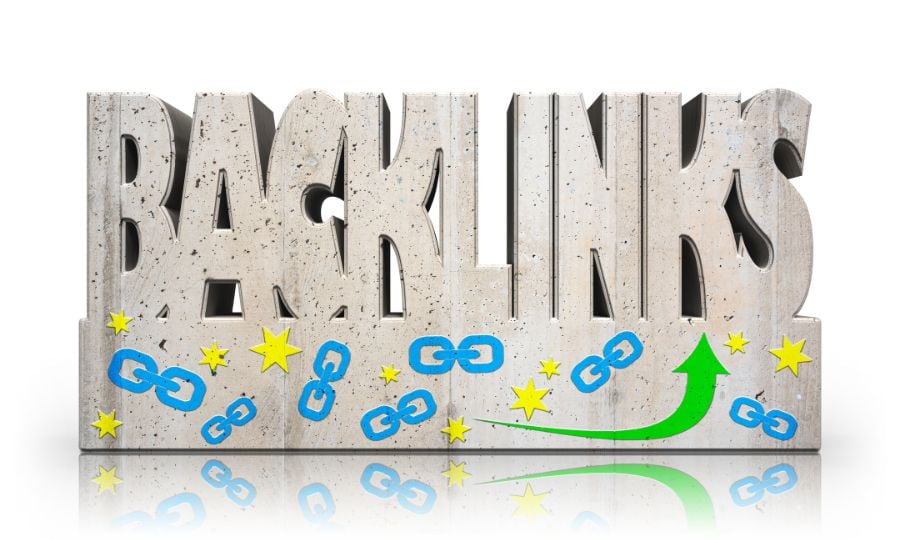Local Inbound Marketing: To Backlink or Not to Backlink—That is the Question
 I am a backlink addict. I look at how many there are on different blogs and worry that we are not keeping up. I have reams of reports about who goes to which website or which landing page or which blog articles. I seek places to connect to that is willing to connect to us. I have commented on competition’s sites and on the sites of the great gurus. In the old days before Pandas and Penguins I bought backlinks and talked about doing that in some old articles on this site. They embarrass me now, but I don’t want to take them down because they clearly show what you should not do.
I am a backlink addict. I look at how many there are on different blogs and worry that we are not keeping up. I have reams of reports about who goes to which website or which landing page or which blog articles. I seek places to connect to that is willing to connect to us. I have commented on competition’s sites and on the sites of the great gurus. In the old days before Pandas and Penguins I bought backlinks and talked about doing that in some old articles on this site. They embarrass me now, but I don’t want to take them down because they clearly show what you should not do.
Imagine my surprise when I stumbled over an article by Jerry Deane, dated August 29, 2013 called Why you should stop building backlinks. What? All the other articles were pages long with charts, graphs, screen shots and advice, lots of advice. I wonder if it possible that these sites are getting backlinks because they have gone to this much trouble writing these articles and not to their schemes at all?
In the beginning
Jerry Deane thinks so. In fact he thinks that trying to do what the other writers suggest will hurt a website’s SEO. Jerry give a great short history about Google and why backlinks were a big deal. In the beginning, oh okay, a while ago Google used certain kinds of information to help a person search for something. One way Google decided that your website was hot stuff was by the number of backlinks on your blog article or on different kinds of pages, like your home page or a landing page.
Then Google indexed your website using some kind of magic algorithm and gave your site a grade—Page Rank (which indicated what Google thought about the quality and credibility of your page). Then you had a share of Google juice using a scale from 1 to 10. If someone wrote on your site who had a higher Page Rank than you, you got a little of that person’s juice. If you wrote on that person’s page, you also got some juice.
Related article: 4 Internet Tips: What Does Off Page SEO Have to Do With It?
Ding Dong PR is dead???
 This was not a really good system. Because there was also negative juice if either person had a lower Page Rank. Now comes something strange that Jerry says,
This was not a really good system. Because there was also negative juice if either person had a lower Page Rank. Now comes something strange that Jerry says,
Well, many believe that while PR exists, it really isn't being used much anymore. Is this true? Who knows, as Google hasn't officially said. But the reality is that most of us don't even look at PR anymore. I know I don't. Honestly, I hadn't looked at PR for Side income Blogging in 6-months or more, and had to look it up for this article. I don't worry about PR, I focus on SERP positions - That's what matters.
He says that credibility counts, but no one is sure what algorithm Google uses to track this. It knows if a link is highly credible or it’s not. So you do want credible links.
The reason the Page Rank thing blew up in Google’s face and called down Penguins and Pandas were that people were gaming the system with what we called white hat strategies, to say nothing of the black hat ones. We paid for links, we put articles on college sites with high page ranks, but we didn’t change the article enough causing duplicate content woes. Or worse we tried to change the article artificially by spinning it. And what messes that produced! These practices are called unnatural links, which Google despises.
Related article: What are Google's 200 Ranking Factors for SEO
Is the almighty Google still paying attention to links on each page? You can do an experiment if you dare—build a fist full of very credibility links too fast and watch your rankings. I think this is the Hummingbird affect. And I don’t mean the kind of affect where a person sneezes or a butterfly does calisthenics and whips up a hurricane half way around the world.
Natural Links Happen
Natural links happen on your site without you even doing one push up. Some person finds your article and likes it because he or she finds the content valuable. This is a whole different thing than buying links or getting on directories that no one has ever heard of. And then there is a strange activity Jerry talks about that I haven’t heard of. So I’ll let him tell you.
You also want to avoid lots of links to your blog where the same keyword is used. For example, someone placing a link to your site in a footer with the same keywords used on every page. I've personally seen this hurt one of my sites. Why? Because it looks like intentional link building with fixed anchor text. While that wasn't the case, Google definitely saw it that way and de-ranked me for the keyword.
So what does Google smile at? Social Media Backlinks. Matt Cutts, who heads the Webspam team at Google, publicly came out and said that people who post their content on Social Media and get Likes, +1 and get the content re-shared are beloved by Google because this proves that the content is valuable and compelling. Google+, even though it does not directly count toward rankings, if someone follows you, Google will reward you for posting.
Guest Posting Win-Win
Get people to write guest posts for you who have credibility and can create valuable and unique articles. If you get asked to guest post or you see that you have an idea that another web owner can use, go for it. These are two ways to get backlinks that are good ones. But find out about the writer or the website to make sure you aren’t getting some kind of spun garbage.
Larry says, “Guest posts are becoming the new ‘paid links.’”
Related article: Local Internet Marketing Tips: Get Your Content on Authoritative Sites
I have to warn you that this is a hard row to hoe. Coming up with unique content for some other blog when you hardly have time to write for yourself can foul up your schedule and even getting great guest bloggers only cuts down a little of your time. You might consider outsourcing if you know a reputable company.

So what do you do if you are not creating intentional links? Larry tells us what he is no longer doing.
I stopped intentional link building more than a year ago. I used to submit my sites to directories, write articles and post them to some of the article repositories, write frequent guest posts, request blog roll links, etc, etc. I've stopped all of that with the exception of the occasional guest post when I have a topic in mind that I think might do well on another blogger's blog.
All I do for social media now is submit my articles to Google+. All other incoming links are the result of people liking my content and wanting to link out to it.
He firmly believes in his system because he has over a thousand inbound links. I’ll bet he also doesn’t have an analytically induced headache.
Are you up for an experiment?
You May Also Like
These Related Stories

6 No-Fail Inbound Backlink Strategies

Building a Strong Local Backlink Profile: Strategies for Success



No Comments Yet
Let us know what you think